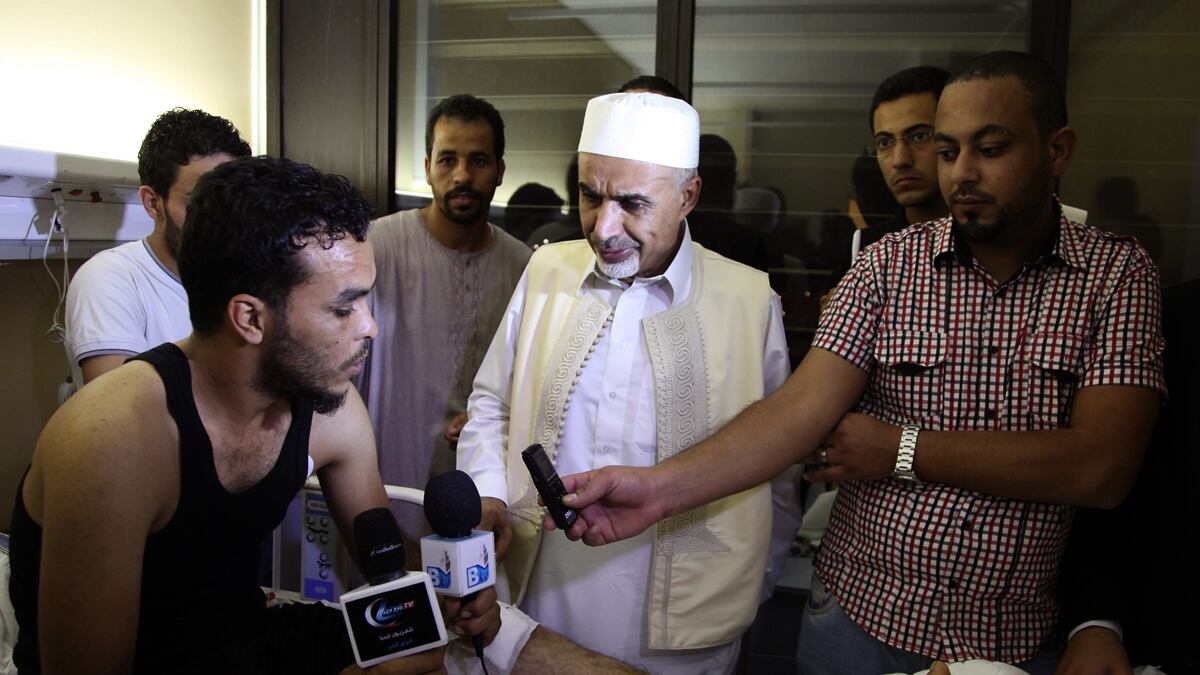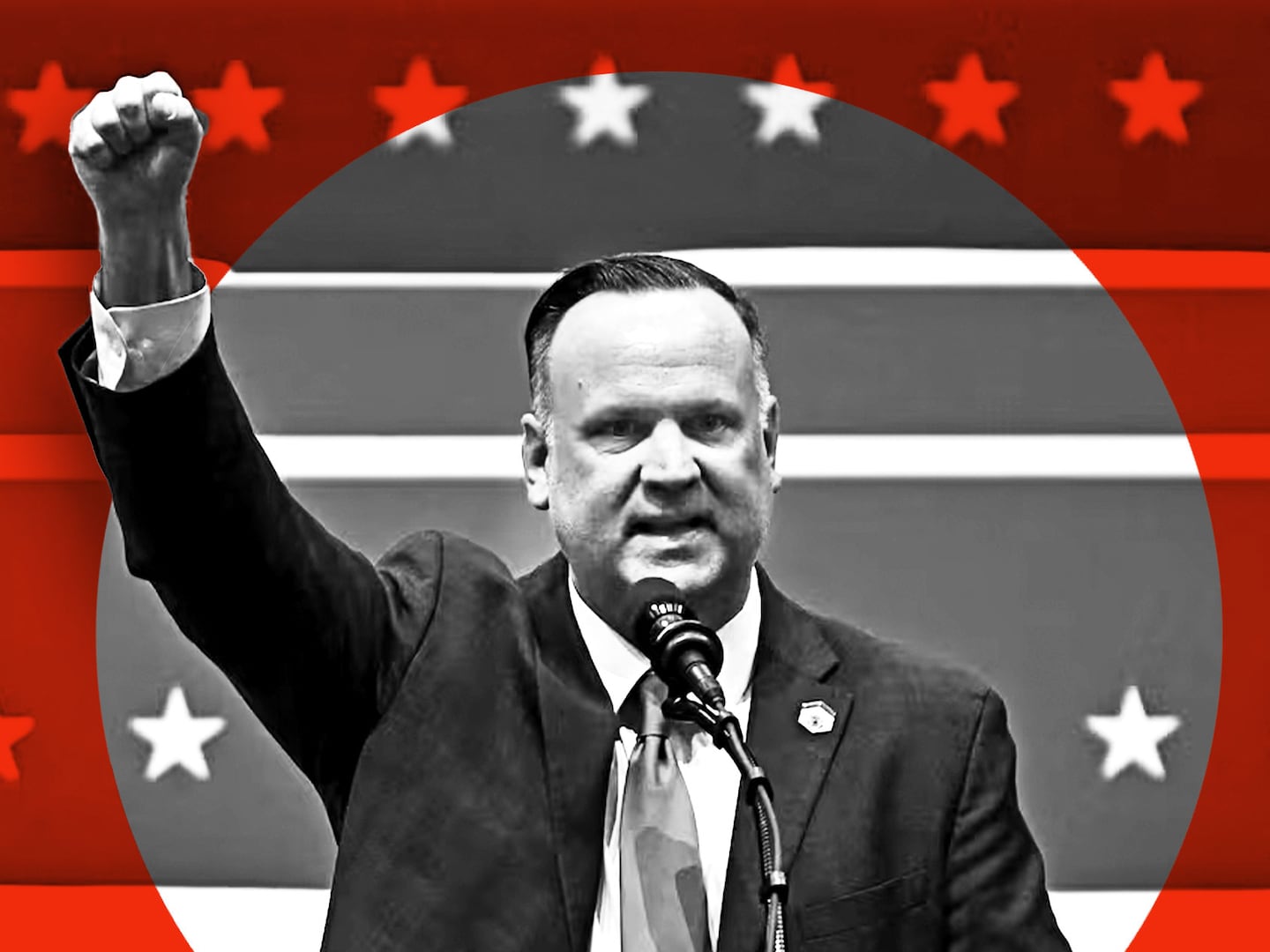America and Libya should share responsibility for the death of U.S. Ambassador Christopher Stevens and three other Americans in the assault on the U.S. Consulate in Benghazi, according to the spokesman of Libya’s new Prime Minister Mustafa Abushagur. He says that so far no evidence has turned up that suggests al Qaeda had a hand in the attack.

“Half of the blame is ours,” the spokesman, Mohamed Al Akari, told The Daily Beast. “Our interior forces on the scene made a big mistake by panicking and starting to fire when the mob approached and that provoked a violent reaction. You have to understand that they don’t have experience in handling protests like this and don’t have training.” But he added that Ambassador Stevens should not have been in Benghazi in the anniversary week of 9/11 and he should have been moved quickly out of the eastern Libyan city to the safety of Tripoli when it became clear how furious the protests were in neighboring Egypt against the movie Innocence of Muslims.
“What were the Americans thinking in having Stevens there in the same week of the 9/11 anniversary, on the same day even, and when al Qaeda leader Zawahiri had recently called publicly on Libyan sympathizers to avenge the death of one of his deputies?”
Al Qaeda leader Ayman al-Zawahiri had issued a call for revenge for the June death of a senior Libyan member of the terror group Abu Yahya al-Libi, who was killed in a U.S. drone strike in Pakistan. The call was included in a 42-minute video recorded by Zawahiri and posted on jihadi Internet forums on Sept. 10, the day before the assault on the U.S. Consulate.
Akari says that the Libyan authorities have found no evidence of direct participation in the consulate attack. “So far we really believe that this was a violent demonstration mainly against the movie that swung out of control. The protesters saw on television what was happening in Egypt and decided to have their own protest. We have no evidence at all that this was al Qaeda.”
The prime minister’s spokesman says members of the militia Ansar al-Sharia are still seen as chief suspects but did not discount the possible involvement of the Imprisoned Omar Abdul Rahman Brigades, a shadowy pro-Al Qaeda group, although not an affiliate of the terror group, which in May claimed responsibility for an attack on the International Red Cross office in Benghazi and in June detonated a small explosive outside the U.S. Consulate and released a video of that attack.
Libyan authorities have arrested another eight members of the Salafist militia blamed by some witnesses for the deadly assault on the U.S. consulate. But Libyan officials have admitted to The Daily Beast that fighters from the Ansar al-Sharia militia were—like all militiamen across the country, whether they heed the central authorities or not—on the Libyan-government payroll at the time of the attack on the American mission.
Those payments will now cease, they say, and Prime Minister Abushagur has vowed to outlaw the Ansar al-Sharia. U.S. congressmen already questioning President Obama’s pledge to stay the course in Libya and, despite Stevens’s death, to assist the country’s fledgling government as it seeks to transition to democracy and stability are likely to be infuriated by the news that the Libyan government was funding Ansar al-Sharia.
Since the ouster of Col. Muammar Gaddafi, the new Libyan authorities have in the absence of an effective army or police subcontracted out security duties to the thuwar (revolutionary) militias. The number of militias has grown enormously—during the rebellion there were between 25,000 to 50,000 thuwars, and after Gaddafi’s ouster more than 250,000 fighters registered as thuwars and received payments from the government. Schemes to dissolve the militias and to form a national army have been discussed all year, but nothing substantial has got off the ground.
The arrests of those suspected in the attack—Libyan officials decline to provide names—came as FBI agents were due to arrive in Libya on Saturday to start their own investigation into the killings, although the agents were delayed because of the security conditions on the ground in Benghazi. Authorities arrested four other members of Ansar al-Sharia on Thursday. “Things are moving very, very well,” says Akari.
For their part, Ansar al-Sharia leaders have publicly denied involvement in the attack on the consulate, insisting they didn’t order any of their men to do so. But they have praised the assault for “protecting the faith and fighting for the victory of God Almighty.” They insist what happened in Benghazi was a “popular uprising.”
Confusion persists, though, about whether the attack on the consulate was spontaneous, prompted by the Egyptian protests, or a far more premeditated act targeting the ambassador that used the anti-American protests as cover. Further, it is still unclear whether there was any al Qaeda involvement.
Libyan officials are not helping to provide clarity. On a visit to Benghazi on Friday, the president of the General National Council, Mohamed Magarief, said the assault was planned well in advance and the work of “experienced masterminds.” He told Al Jazeera: “I think this was al Qaeda,” adding, “if you take into account the weapons used, like RPGs and other heavy weapons, it proves that it was preplanned.” But his assertions weren’t apparently based on evidence more on his personal opinion.
He took sharp issue with the statements of the deputy interior minister, Wanis Al-Sharif, who has blamed both Gaddafi loyalists for the attack and criticized U.S. security guards who he said had inflamed demonstrators by firing at them. Magarief says pro-Gaddafi elements were not involved in either the attack on the consulate or later on another building a mile away where consulate staff sought safety. But U.S. intelligence sources aren’t convinced that an al Qaeda–affiliated group was behind the attack. “You have to draw a distinction between al Qaeda aligned or sympathetic and an actual affiliate,” says a U.S. official reached by email.
Meanwhile, Salafists in the eastern Libyan city warned on Friday that they would retaliate against foreigners if they come under attack from either the government or the U.S. On Friday, officials closed the airspace over Benghazi to prevent any civilian airliners from being downed when militants warned that they would fire if they spotted any American surveillance aircraft. Ali al-Shaikhi, spokesman for the Army chief of staff, confirmed that the decision to halt civilian aircraft flying into Benghazi was taken as a precaution.






